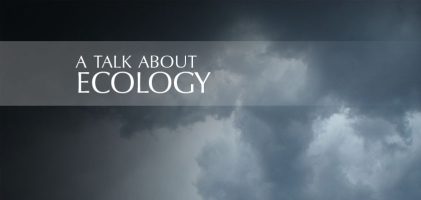Author: Robert D. Brinsmead
The environmental movement began as a protest against Western culture’s alienation from nature. This alienation was said to have its roots in the Judeo-Christian heritage that sets man apart as a special creation above the natural kingdom (see Genesis 1:28, 29). Environmentalism advanced the antithesis that puts an all-wise Mother Nature on a pedestal above the human race. The natural is lauded and, to quote an old one-liner, “only man is vile.”
There is a very pervasive anti-human bias in environmentalism, and it is expressed in a bias against human technology, economic growth and human prosperity. Global warming theory is popular because it is just another big stick to beat up on human activity. Human activity cops the blame for everything from the disappearing green tree frogs to almost any natural disaster.
It is as if Augustine’s old doctrine of original has come back to haunt us again. It was a doctrine that said every single calamity on the earth, including the disaster of death itself, was all man’s fault – or was it woman’s fault? Anyhow, in this present orgie of human blaming, eagerly supported by media sensationalism, the alienation of man from nature has become worse than what it was before environmentalism tried to correct it.
I want to propose that we look at our human relationship to nature in a new way. This will be like putting on a whole new pair of glasses that puts biotechnology and every other kind of human technology in a much more positive light.
I propose that we recognize that the same natural evolutionary process that brought bees, birds and mammals into existence, has also brought Homo sapiens into existence. By saying this I am not trying to empty this emergence of everything of its awe and wonder. I am just pointing out the scientific reality that humankind emerged through the same natural processes as every other living thing. This means that the human species is nature too.
If every other form of life made up of living cells with genes and DNA is what we call nature, then Homo sapiens, whose genes are 98.7% the same as the chimpanzee, is also nature. When ants accomplish an amazing feat of technology in constructing a termite’s nest, or elephants make water holes with their feet, or beavers construct a dam across a stream, we call that nature. On what basis can we then say that human technology is man-made rather than natural? This is philosophical and scientific nonsense, yet we keep repeating this nonsense like the slogan of the pigs in Animal Farm, “Four legs good, two legs bad” – as if what is done by a creature with four legs, six legs or no legs is natural and must be good for the environment, whereas what is done by a creature with two legs is man-made and must be bad for the environment.
If human intelligence evolved through the same natural process that produced a fox’s cunning and a beaver’s dexterity, then all human intelligence is natural and all human technology is natural. I am not saying it is necessarily good, but it’s undeniably as natural as the technology of a bee hive, the weaving of a spider’s web or the navigational equipment of migratory birds.
In human consciousness nature has finally become conscious of itself. “We may think of ourselves,” says the great mythologist Joseph Campbell, “as the functioning ears and eyes and mind of this earth.” Heretofore nature could only act in a random order of hit and miss. As such, nature has often been wasteful and prone to structural flaws, as the ABC science reporter, Robyn Williams, has made all too clear in his recent satire, Unintelligent Design. But now Mother Nature has acquired in this human mind what Julian Simon has called “the ultimate resource,” and a power that the brilliant Princeton physicist, Freeman Dyson, has described as being “infinite in all directions.”
“Nature has structural flaws and physical limitations” writes Greg Easterbrook (A Moment on the Earth) “Genus Homo may be able to change that. People may be here because nature needs us – perhaps needs us desperately…There is no reason in principle why nature ought to oppose the arrival of the high-speed analytical powers of the mind. Nature may have been dreaming of these very powers for 3.8 billion years.” (pp.668-669). This is why the late physicist Heinz Pagel could write in Dreams of Reason that it is high time that we discard “the radical distinction between mind and nature.” This includes, of course, the distinction between natural and man-made. RDB

